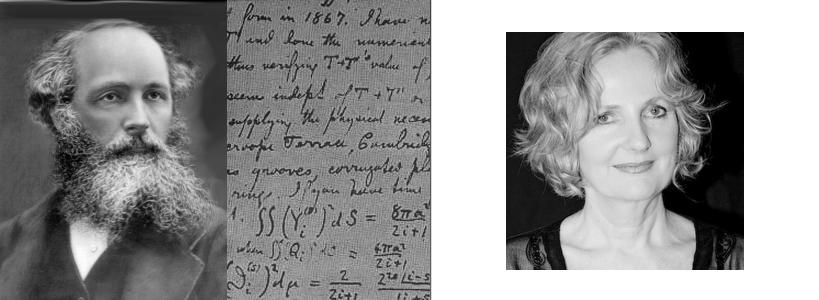Celebrating Maxwell – and Scientific Curiosity
Dr Robyn Arianrhod
Adjunct Research Fellow
School of Mathematical Sciences, Monash University
It’s hard to imagine life without radio, TV, mobile phones, and wireless computers, so it’s worth celebrating the fact that the wireless revolution was initially founded on “pure”, curiosity-driven research. This year marks the 150th anniversary of James Clerk Maxwell’s theory of electromagnetism, which predicted the very existence of wireless electromagnetic waves. It also revealed the electromagnetic nature of light, and it facilitated the development of other electromagnetic technologies, whose modern applications include microelectronic devices, electromagnetic shielding and transmission, medical diagnostics and therapies, mineral detection and production, and more.
This revolutionary theory was first published in the Royal Society’s Philosophical Transactions, at the beginning of 1865. It would take nearly a quarter of a century before Maxwell’s wireless prediction was verified, when Hertz generated the first deliberately engineered radio waves, and it took another two decades for the birth of radio as we know it. A century after Maxwell’s prediction, Australia’s famous “Dish” played a crucial role in relaying images of those first human steps on the moon, while today, the immensely powerful square kilometer array radio telescope is being built in Australia and South Africa. Radio waves are a vital key to the cosmos, and of course they also underpin our sophisticated communications technologies. Wi fi itself is an Australian invention arising from research in radio astronomy.
In pausing to mark this special 150th anniversary, we are celebrating both the importance of “blue sky” research, and the wonderfully human trait of curiosity itself. Maxwell’s curiosity was renowned among his contemporaries, but he was such a humble, gentle genius that until recently he has remained unsung and unknown outside the scientific community.
This talk will celebrate Maxwell, his science, and his legacy. In particular, it will aim to give an accessible insight into how he used mathematics to take us beyond our physical senses – beyond even our conscious imagination – to predict the existence of new, undreamt-of physical phenomena. No wonder Einstein would later say: “To few men in the world has such an experience been vouchsafed… One scientific era ended and another began with James Clerk Maxwell.”







